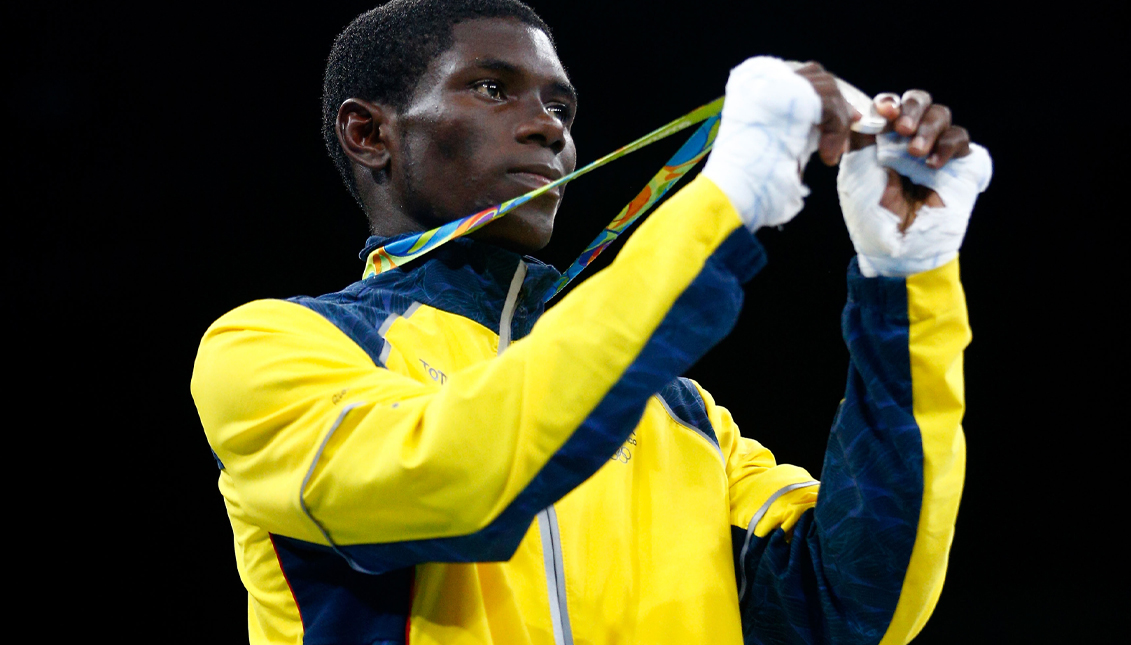
South American Olympic athletes, between glory and poverty
Many athletes tour the world representing their country, but when they return home, they still have to contend the lack of resources.
In the mid-1990s, Ceiber Ávila was just a child from Turbo, Antioquia, one of the regions in Colombia where violence was most prevalent due to the struggle between the guerrillas, paramilitaries and the army.
His childhood was like millions of young people in rural and remote areas of the country — between violence, seeing corpses every day in the dusty streets of his town, fleeing when different armed groups clashed and helping his parents to survive.
“You just listened to that motorcycle and ran, there was no other way, those men, whenever they appeared they were going to kill someone, and you avoided not only seeing more dead than usual, but also earning a loose bullet. They were thugs,” Ávila recalled in an interview with the Colombian newspaper El Tiempo in 2017.
Years and many struggles have passed from that history so Ávila could come to represent Colombia in the Tokyo Olympics in boxing. Like him, who faced Evaristo Mulenga of Zimbabwe in his latest bout, many Colombian and South American athletes have found in sports an escape from poverty and difficulties.
Many are also at the peak of their careers, touring the world and representing their country. But when they return home, they still have to contend the lack of resources.
RELATED CONTENT
The boxer Yuberjén Martínez, who won silver in his weight class in Rio 2016, worked as a bicycle mechanic to help his family. By winning the silver medal, he realized that his dream was to give a decent home to his mom.
When weightlifter Javier Mosquera won the silver this past weekend, the controversy between the Ministry of Sports and the Colombian Federation of Weight Lifting ignited due to the apparent lack of support from the ministry for the sport.
But perhaps the most notorious case of the disagreement of the athletes with the support of their governments, is not from Colombia, but from neighboring Ecuador. When the cyclist Richard Carapaz won the gold medal on road cycling, he did not hesitate to assure: "The country never believed in me, the gold belongs to me."
Una poesía con versos aclamados por un pequeño pueblo. Este oro es para quien realmente ha creído en mí. También para mis hijos, esposa y mis padres. Los amo! Sepan seguro que los días más grandes se escriben con la misma tinta de olimpo. Gracias Ecuador pic.twitter.com/hNWsOeH8i8
— Richard Carapaz M (@RichardCarapazM) July 24, 2021
The harsh statement comes from one of the most important cyclists in the world. Carapaz is not a new face in cycling, he has competed in all the great races in Europe: the Tour de France, in which he finished third this year, the Vuelta a España and the Giro d'Italia, always with outstanding performances.
South American athletes have reached the top of their sports amid the limitations and lack of support from organizations and the same state that in times of triumph come out to congratulate and take credit for the results.











LEAVE A COMMENT:
Join the discussion! Leave a comment.